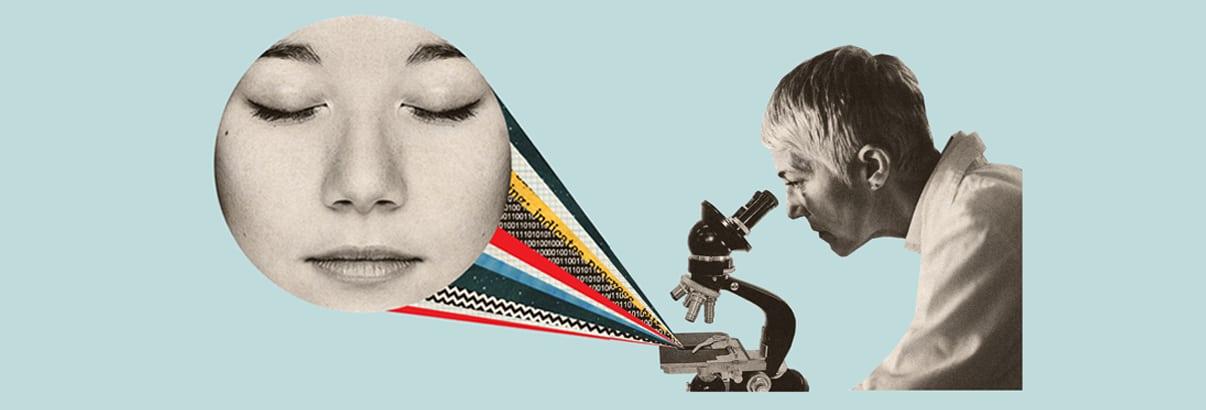In a world buzzing with constant notifications and endless to-do lists, the quest for inner peace has led many to the ancient practice of meditation. Heralded as a panacea for the modern mind, meditation promises tranquility, focus, and emotional balance. Yet, as it garners followers from diverse walks of life, a crucial question arises: Is meditation truly effective for everyone? This article delves into the heart of this inquiry, exploring the multifaceted nature of meditation and its varied impact on individuals. From seasoned practitioners to skeptical newcomers, we unravel the layers of this age-old practice to uncover whether its benefits are universal or if, like many things, it remains a deeply personal journey. Join us as we navigate the serene and sometimes turbulent waters of meditation, seeking clarity in a practice designed to still the mind.
Exploring the Science Behind Meditations Universal Appeal
Meditation has transcended cultural and geographical boundaries, captivating individuals from all walks of life. At its core, the practice offers a sanctuary from the frenetic pace of modern existence. But what is it about meditation that universally resonates? The science suggests that its appeal lies in its profound impact on the brain and body. By fostering mindfulness, meditation encourages a heightened awareness of the present moment, which can lead to reduced stress levels, improved concentration, and a greater sense of well-being.
Several factors contribute to its widespread acceptance and efficacy:
- Neuroplasticity: Regular practice can rewire the brain, enhancing emotional regulation and resilience.
- Stress Reduction: It lowers cortisol levels, the hormone associated with stress, thereby promoting relaxation.
- Universal Accessibility: Meditation requires no special equipment or setting, making it accessible to anyone, anywhere.
These benefits, backed by scientific research, highlight why meditation holds a universal allure, offering something beneficial for everyone willing to embrace its practice.
Personalized Approaches to Meditation for Diverse Needs
In the realm of meditation, a one-size-fits-all approach often falls short. People are wonderfully diverse, and so are their paths to inner peace. Whether you’re seeking tranquility amidst a bustling city life or aiming to enhance focus in a fast-paced work environment, personalized meditation techniques can be incredibly beneficial. These tailored practices might include guided visualizations, breathwork, or even mindful movement, each chosen to suit individual lifestyles and preferences. Embracing this personalized approach not only fosters a deeper connection with the practice but also enhances its effectiveness by aligning with the unique rhythms and needs of the practitioner.
- Guided Visualizations: Ideal for those who find stillness challenging, this technique uses vivid imagery to calm the mind.
- Breathwork: A focus on controlled breathing can significantly reduce stress and increase mindfulness.
- Mindful Movement: Practices like yoga or tai chi integrate physical movement, appealing to those who find traditional meditation static.
- Sound Meditation: Utilizing music or nature sounds can enhance the meditative experience for auditory learners.

Unveiling Common Barriers and Misconceptions
Meditation, while celebrated for its potential benefits, often encounters several barriers and misconceptions that can hinder individuals from fully embracing the practice. One common barrier is the belief that meditation requires a complete clearing of the mind. Many beginners feel discouraged when they can’t stop their thoughts, not realizing that mindfulness is more about observing these thoughts without judgment than achieving a blank mental state. Additionally, the misconception that meditation demands lengthy sessions can deter busy individuals. In reality, even a few minutes of focused breathing can be profoundly beneficial.
Another prevalent misconception is that meditation is solely a spiritual or religious practice. In truth, it has secular applications that focus on mental well-being and stress reduction, making it accessible to a broader audience. Moreover, some people believe that meditation is only effective for those who are naturally calm or introverted. However, meditation can be particularly transformative for those who experience high levels of stress or anxiety. By acknowledging and addressing these barriers and misconceptions, more people can explore and potentially benefit from meditation.

Practical Tips for Enhancing Your Meditation Experience
Whether you’re a seasoned meditator or just starting out, there are several ways to deepen your practice and make it more effective. Here are some practical tips to consider:
- Find Your Ideal Space: Choose a quiet, comfortable spot where you won’t be disturbed. This could be a corner of your home or a peaceful outdoor setting.
- Set a Consistent Schedule: Meditating at the same time each day can help establish a routine. Morning or evening sessions can provide a calm start or end to your day.
- Use Guided Meditations: If you find it challenging to focus, consider using apps or online resources that offer guided sessions tailored to different levels and goals.
- Incorporate Breathing Techniques: Focusing on your breath can anchor your thoughts. Try different techniques like box breathing or alternate nostril breathing to find what works best for you.
- Embrace Patience and Flexibility: Progress in meditation can be non-linear. Some days will be more challenging than others, and that’s okay. Allow yourself the grace to adapt your practice as needed.
By experimenting with these strategies, you may find a more profound sense of peace and clarity in your meditation journey, making it a more rewarding experience overall.
In Summary
As we close this exploration into the world of meditation, it becomes clear that the practice is as diverse and multifaceted as the individuals who engage with it. For some, meditation serves as a sanctuary, a place to find peace amidst the chaos of everyday life. For others, it may remain an elusive enigma, a practice that doesn’t quite resonate despite its promising allure. What we can gather from the myriad experiences is that meditation is not a one-size-fits-all solution, but rather a personal journey that may or may not lead to the tranquility one seeks.
As you ponder whether meditation holds a place in your life, remember that the beauty of self-discovery lies in the willingness to explore and embrace what works uniquely for you. Whether you find solace in silence, or your path to peace lies elsewhere, the journey is yours to navigate. perhaps the true effectiveness of meditation is not in its universal application, but in its invitation to pause, reflect, and engage with the present moment in whatever way feels most authentic to you.
